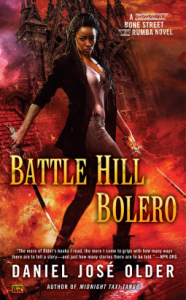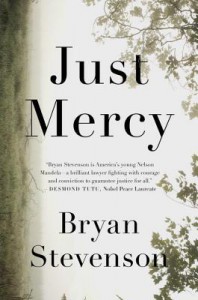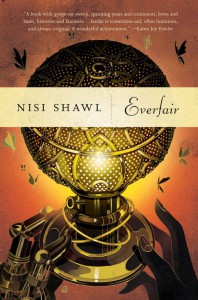Invisible Planets
Edited and translated by Ken Liu
I haven't read all that much Chinese speculative fiction, so when I saw Invisible Planets on Netgalley, I jumped at the chance to read it. I'm always incredulous by any statements attempting to summarize the imaginations of an entire country, so I was relieved when Ken Liu explicitly stated in the forward that he had no illusions that the collection is somehow a full representation of all of Chinese scifi. As he says, this is a collection of stories from seven contemporary authors, and while the stories speak to the mood of the societies they write about,
"Science fiction is the literature of dreams, and texts concerning dreams always say something about the dreamer, the dream interpreter, and the audience."
Chen Qiufan, the first author of the collection, is also probably my favourite. His stories are an effortless mixture of humor and horror, absurdity and realism. "The Year of the Rat", which involves a dystopian society overrun by genetically-engineered Neorats™, is full of vivid characters and dramatic twists. "The Fish of Lijiang" is packed with dramatic metaphor, a cynical tale about time, ambition, and lost opportunities. My favourite quote:
"I have a car, a house--everything a man should have, including erectile dysfunction and insomnia. If happiness and time are the two axes of a graph, then I'm afraid the curve of my life has already passed the apex and is on its inexorable way down to the bottom."
"The Flower of Shazui" is equally forceful and gorgeous, and even more lyrical. My favourite quote:
"Sin is like wine. The more it is hidden from sunlight, the more it ferments, growing more potent."
Incisive and brilliant, I also loved his characterization of the literary role of scifi:
"In my view, 'what if' is at the heart of science fiction. Starting with reality itself, the writer applies plausible and logically consistent conditions to play out a thought experiment, pushing the characters and plot toward an imagined hyperreality that evokes a sense of wonder and estrangement."
As a contrast to Chen Qiufan's cynical eloquence, Xia Jia's stories feel more mythopoeic to me, rather in the style of Charles de Lint or Emma Bull. "A Hundred Ghosts Parade Tonight" felt particularly imbued with myth and folklore, to the point where I was quite sure I was missing most of the references. "Tongtong's Summer" was something of a contrast to the dreamlike "Ghosts," a sweet, optimistic (to the point of impracticality) story of home robots and the way technology could improve the lives of the elderly and infirm. "Night Journey of the Dragon-Horse" was probably my favourite story by Xia Jia, a gorgeous and haunting vision of a post-human world.
Only one story from Ma Boyong is included in the collection, but it's also one of the most unique. I found "The City of Silence" to be a pretty straightforward satire about oppression, but it's also eminently quotable. Some of my favourites:
"Only the bookmarks menu, which could not be edited, contained the addresses for a few Web sites. The reason for this was simple: all these Web sites were healthy and positive. If other Web sites had the same contents as these, then logically, having access to these Web sites alone was sufficient. On the other hand, if other sites had different content, then, logically, those other sites must be unhealthy and vulgar and should not be accessed."
"Shielded was a technical term. A shielded word was forbidden in writing or in speech. Ironically, shielded itself was a shielded word."
"Better and worse were variables, but his life was a constant, the value of which was repression."
All in all, "The City of Silence" is a worthy successor to
1984 with all the infuriatingly circular black comedy of
Catch 22.
After "The City of Silence," the tone of the collection drifted more from incisive satire to lyrical metaphor and creative flights of fancy. Hao Jingfang's stories are wildly imaginative, from "Invisible Planets"' vivid vignettes of life on a series of bizarre planets to "Folding Beijing"'s portrait of a city that can fold and reform like origami. Hao Jingfang uses these gorgeously imaginative backdrops to explore themes such as prejudice, time, and identity, and truth:
"He didn't know what was the point of knowing the truth. If he could see some things clearly but was still powerless to change them, what good did that do?"
Tang Fei's "Call Girl" is a short tale, but memorable for its gorgeously poetic language, for example:
"Sunlight slices across her shoulders like a knife blade."
Unfortunately, I think I was missing the cultural background to truly understand Cheng Jingbo's "Grave of the Fireflies". The story is packed with symbolism and allusion, melding together imagery of magical castles, frontier pioneers, magical castles, deep space, red giants, and extinguished stars. The collection ends with two stories by the renowned Liu Cixin, but I found his stories a bit wanting. Almost the entire plot of "The Circle,", including the primary conceit of a CPU made out of humans, also appears in The Three Body Problem. I quite enjoyed the conceit of "Taking Care of God", where humans finally meet their makers, not as divine beings, but as elderly beings who need assistance. His nonfiction essay certainly contains no false modesty, as he pretty much claims that his book was singlehandedly responsible for the renaissance of Chinese scifi.
The collection finishes up with several of the authors' nonfiction essays. While I appreciate how Ken Liu refuses to try to characterize all of Chinese science fiction, there are some common themes woven throughout. As many of the essays note, the attitudes of science fiction can characterize overarching feelings about technology and society's future.One such theme, expressed by many of the authors in the nonfiction essays about scifi included at the end, is that of the "Chinese Dream," which Xia Jia defines as
"the revival of the Chinese nation in the modern era."
Chen Qiufan expresses its influence on society as follows:
"Between the feeling of individual failure and the conspicuous display of national prosperity lies an unbridgeable chasm. The result is a division of the population into two extremes: one side rebels against the government reflexively (sometimes without knowing what its 'cause' is) and trusts nothing it says; the other side retreats into nationalism to give itself the sense of mastering its own fate."
Overall, Invisible Cities is a gorgeous collection, well worth reading for anyone curious about Chinese scifi or just looking for some great new contemporary authors.
~~I received this ebook through Netgalley from the publisher, , in exchange for my honest review. Quotes are taken from an advanced reader copy and while they may not reflect the final phrasing, I believe they speak to the spirit of the collection as a whole.~~
Cross-posted on Goodreads.



 2
2





















